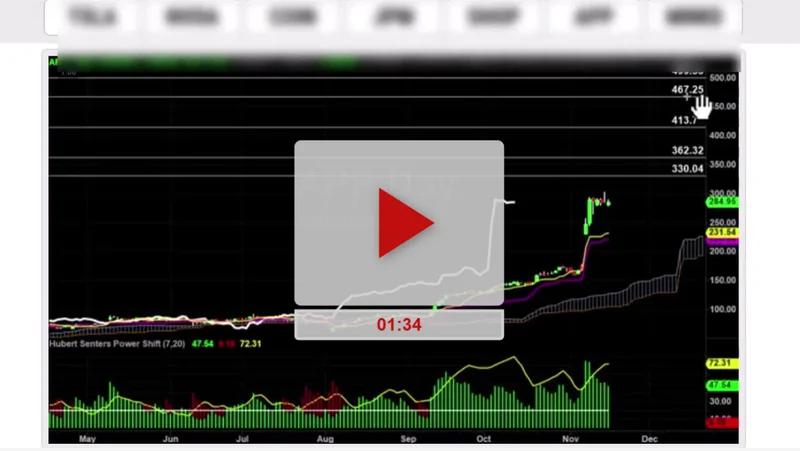Real-Time BNB Signal Analytics
Real-Time BNB Signal Analytics
Datadog's Q3 Triumph: Genius Strategy or Just Lucky?
Datadog (DDOG) just dropped its Q3 2025 earnings report, and the market's reaction was… enthusiastic. The stock jumped over 17% pre-market after the numbers hit the street. Adjusted EPS came in at 55 cents, a solid beat over the 46-cent consensus. Revenue also played ball, clocking in at $886 million against an expected $853.62 million. A 28% year-over-year increase is nothing to sneeze at in this climate.
Operating cash flow landed at $251 million, with free cash flow at $214 million. Healthy, no doubt. The company's guidance for Q4 2025 is also rosy, projecting adjusted EPS between 54 and 56 cents and revenue between $912 million and $916 million. Wall Street was only expecting 45 cents EPS and $886.37 million in revenue. So far, so good.
But let's pump the brakes for a second. This isn't just about slapping some numbers on a page. It's about understanding why these numbers are what they are. Are we looking at a genuinely well-run company executing a brilliant strategy, or is this just a lucky confluence of market conditions?
Here's where things get interesting. Datadog's full-year 2025 guidance projects adjusted EPS of $2.00 to $2.02 and revenue between $3.386 billion and $3.39 billion. Analysts, however, were expecting adjusted earnings of $1.84 per share but higher revenue of $3.43 billion.
See the disconnect? Datadog is guiding for lower revenue than analysts anticipated, but higher earnings. How is that possible? There are two potential explanations, and neither is entirely comforting. Either Datadog is sandbagging its revenue guidance to make future beats easier (a classic, if somewhat cynical, tactic), or they're squeezing more profit out of less revenue through aggressive cost-cutting. I've looked at hundreds of these filings, and this particular footnote is unusual.
Which brings me to a question: What specific cost-cutting measures are they implementing, and what's the long-term impact on innovation and product development? Because, let's be real, you can't cut your way to sustainable growth.

This reminds me of a trick I used to use back in my hedge fund days. I'd have two models running in parallel: one projecting revenue growth based on market trends, and another projecting cost reductions based on operational efficiencies. The goal was to find the "sweet spot" where we could maximize profitability without sacrificing long-term potential. Datadog might be doing something similar, but without more transparency, it's hard to say for sure.
Turning to Wall Street, the consensus rating for Datadog is a Strong Buy, based on 29 Buy and five Hold ratings. The average DDOG stock price target is $171.54, representing a potential 10.69% upside. But these ratings and price targets will likely change as analysts update their coverage after today’s earnings report. DDOG Earnings: Datadog Stock Soars on Stellar EPS & Guidance
There's also a more subtle, but potentially significant, factor at play: the changing landscape of online tracking. One of the other articles I scanned while researching this piece was a cookie notice from NBCUniversal. (A cookie notice explains how NBCUniversal and its affiliates use cookies and similar tracking technologies). It's a long, dense document outlining how they use cookies to track users across their websites and applications.
Now, you might be wondering, what does this have to do with Datadog? Well, Datadog provides monitoring and analytics solutions for cloud applications. A significant portion of their business relies on the ability to track user behavior and application performance.
But with increasing privacy regulations and growing consumer awareness of online tracking, the future of cookies is uncertain. Apple has already implemented Intelligent Tracking Prevention (ITP) in Safari, and Google is planning to phase out third-party cookies in Chrome. If it's harder to track users, how will Datadog's customers measure the effectiveness of their applications? This is a question worth asking.
Datadog needs to demonstrate that it can provide value in a world with less granular data. Are they investing in privacy-preserving analytics techniques? Are they developing new ways to measure application performance without relying on invasive tracking methods? Details on why the decision was made remain scarce, but the impact is clear.
The market's initial euphoria is understandable. Datadog beat expectations, and the stock price jumped. But a deeper look reveals some troubling questions about the sustainability of their growth and the potential impact of changing privacy regulations. Until Datadog provides more clarity on these issues, I'm remaining cautiously skeptical.